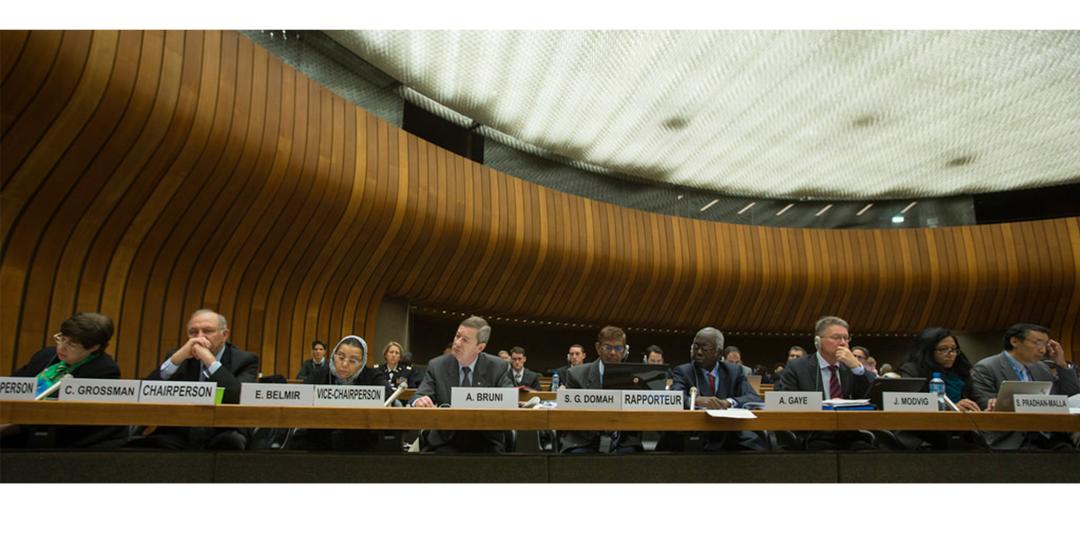
(Geneva, May 24, 2018) – The UN Committee against Torture (CAT) has published its Concluding Observations on Qatar’s third periodic report following the state’s review on May 1 and 2, 2018. Prior to the review, Alkarama submitted a shadow report and briefed the CAT members on Qatar’s compliance with the Convention against Torture (UNCAT) since its last review in November 2012.
While Alkarama commends Qatar’s accession to the International Covenants on Civil and Political Rights (ICCPR) and Social and Economic Rights (ICSER) on May 21, 2018, there is more to be done to ensure that torture and ill-treatment are prohibited in law and in practice. To this end, Alkarama welcomes the CAT’s Concluding Observations, which address and make recommendations on key issues raised in Alkarama’s shadow report, including deficiencies in provisions on the absolute prohibition and criminalisation of torture, counter-terrorism legislation, and the implementation of the principle of non-refoulement.
Absolute prohibition and criminalisation of torture
In its shadow report, Alkarama highlighted that Qatari law does not include any provisions which guarantee that no exceptional circumstances whatsoever may be invoked to justify torture or ill-treatment.
The CAT raised this issue in its Concluding Observations on two separate occasions. It recommended that the State Party revise its legislation to ensure that it unambiguously reaffirms the absolute prohibition of torture in all circumstances. The CAT also recommended that Qatar bring its Criminal Code into line with the UNCAT by ensuring that an order from a superior cannot be invoked as justification of torture.
Counter-terrorism legislation
The CAT also reiterated Alkarama’s concerns about Qatar’s counter-terrorism laws, which allow for derogation from fundamental safeguards enshrined in the Code of Criminal Procedure and thus enabling arbitrary detention.
The Concluding Observations refer specifically to numerous cases submitted by Alkarama, including those of Mansoor Al Mansoori and Mohammad Meshab. Both are Qatari citizens who were arrested and held in prolonged solitary confinement, which is considered a form of ill-treatment under international law.
In light of the abovementioned cases, the CAT repeated the recommendations it made during Qatar’s 2012 review. It urged the state to reassess its existing counter-terrorism laws and to repeal certain provisions that contravene its obligations under the UNCAT. This includes both Article 18 of the Law on Combating Terrorism and Article 7 of the Law on the State Security Agency. The former allows for a suspect to be held for up to 15 days – which may be extended for up to six months – without being brought before a judge. The latter allows for persons to be held for 30 days before being brought before a judicial authority.
Non-refoulement
Alkarama highlighted that there are no explicit provisions in Qatari domestic law that expressly prohibit the expulsion, return or extradition of a person to another state where there are substantial grounds to believe that they would be subjected to torture.
Alkarama also pointed out that Qatar is party to several bilateral and regional treaties, including the Gulf Cooperation Council (GCC) Security Convention of 2012, which enable refoulement. In particular, Alkarama raised the case of Saudi human rights defender Mohammed Al Otaibi, who was arrested in Doha Airport while on his way to seek political asylum in Norway, and extradited to Saudi Arabia on May 24, 2017, despite the widespread and systematic use of torture in Saudi Arabia.
In its Concluding Observations, the Committee asserted that Al Otaibi’s case demonstrates that Qatar “may have acted in breach of the principle of non-refoulement during the period under review”. It went on to reaffirm Qatar’s obligations under the UNCAT, recommending that the State Party “(e)nsure that no one may be expelled, returned or extradited to another State where there are substantial grounds to believe that he or she run a personal and foreseeable risk of being subjected to torture”.
Follow-up
Under the follow-up procedure, the experts choose a number of recommendations that they consider to be urgent and request that the State Party reports back on them within a year.
Qatar has been asked to report back by May 18, 2019 with information on progress on recommendations regarding fundamental legal safeguards and non-refoulement, among other issues, reflecting Alkarama’s concerns.
For more information or an interview, please contact media@alkarama.org (Dir: +41 22 734 1006).
